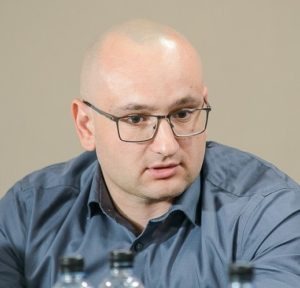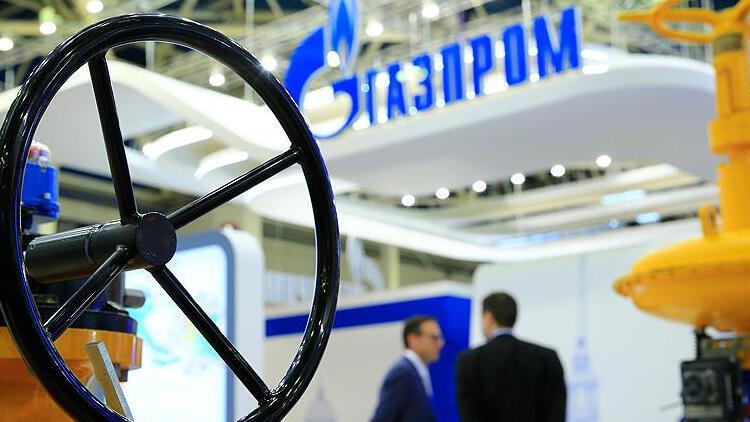Perizat RISBEK KIZI
The Republic of Moldova has recently faced an energy crisis due to the expiration of Moldova’s contract with Gazprom. In this context, Moldova has been affected by the fact that the natural gas prices set out in the agreement between Russia and Moldova depend partly on oil prices and partly on stock prices.
Due to gas shortages and uncertainty over additional contracts, the Moldovan government had declared a 30-day state of emergency in the country since October 22. However, on October 29, it was announced that the Moldovan government and Russia’s Gazprom has extended the gas supply contract for the next five years.
To learn more about the main causes of the Russian-Moldovan energy crisis, The International Asia Today brings to your attention the opinion of the Moldovan political scientist Sergey Manastyrly.

a political expert from Moldova. He is the director of the Research, Analysis and Forecasts Center Balkan-Center
Dear Sergey, as we know, a state of emergency was declared in Moldova for a period of 30 days due to an energy crisis. What was the reason for this decision and how do you assess the current situation?
The energy crisis in Moldova was trending for a long time. The entire energy supply system of the country, in a matter of speaking, contains some risky components. Their use makes Moldova dependent on external factors and refusing to use them causes a technogenic disaster.
In your opinion, what was the main reasons for the Russian-Moldova economic tension?
We are talking about Russian gas, unrecognized by Transnistria with its large enterprises and the Moldavian state district power station. As long as Moldova considers Transnistria as part of its country, even though it is not controlled by official Chisinau, it must take responsibility for supplying gas to the region. At the same time, the republican authorities, which are not recognized by any member state of the United Nations, do not pay for the consumed gas. Therefore, Moldova’s current debt to Russian Gazprom has reached 7 billion dollars. Chisinau cannot cut off the gas pipeline for them, because the pipeline passes through the territory of Ukraine. Rather, it is Tiraspol that can cut off gas supplies to the rest of Moldova in the event of a conflict.
Most importantly, the Moldavan power station in Transnistria converts a significant portion of the received free gas into electricity, which it sells to Moldova and several other countries in the region. This station is important for maintaining voltage stability in power grids in Moldova, Transnistria, and neighboring regions of Ukraine and Romania. This center is very important. To understand the role of this power plant, one fact is enough – even during the period of tough military confrontation on the banks of the Dniester, neither side risked blocking the operation of the station so as not to provoke a man-made disaster.
In short, this is the current situation in the Moldovan energy sector. Interdependence, ambition, and resentment caused a crisis when the contract with Gazprom expired and a new contract was required.
As we know, Western leaders have repeatedly accused Russia of trying to provoke an energy crisis in Europe. According to you, how did the energy crisis in Moldova affect EU countries?
It can be hardly said that the energy crisis in Moldova has affected the European Union countries. On the contrary, Moldova`s “gas story” is a small part of a large hybrid war in which gas became possible to be used as a weapon. In this context, the European community got involved in partial support of the Republic of Moldova. The European Commission has provided Moldova with 60 million euros in assistance and also facilitated negotiations on gas purchases from European suppliers. At the same time, Moldova’s demand for gas in winter, according to Prime Minister Natalia Gavrilita, is about 800 million euros, while alternative suppliers sold gas to Moldova in small lots and at market prices. The support of the European Union has been highly symbolic and has not been able to resolve the issues with Gazprom on full supplies of natural gas.
How do you interpret the factor of President Maia Sandu in resolving the crisis?
From the very beginning of the Moldovan-Russian gas crisis, President Sandu had refused to be publicly involved in the negotiation process. However, at the final stage, we saw that she was actively negotiating with European leaders and, as she later admitted, with Dmitry Kozak, the vice-head of the Russian presidential administration. The President in Moldova is a more symbolic figure. It does not have institutional levers and mechanisms to influence crises. Despite this, Maia Sandu was quite active in supporting the Moldovan negotiating group, maintained high-level contacts with European leaders, and raised issues of the need to support Moldova at the international level during this difficult period. It should also come as no surprise that Sandu, who remains the pivotal figure of the current government in Moldova, plays a role in resolving the gas crisis.

